Nigeria has some seriously tasty dishes that are perfect for a casual night in. The best part is, many of these popular Nigerian dinner ideas are actually really easy to make at home. Whether you’re in the mood for rice and stew, jollof rice, moin moin, or suya, there are so many options to choose from.
In this article, we’ll walk you through 10 of the most popular Nigerian dinner foods. Get ready for a flavorful journey and bon appetit!
10 Popular Nigerian Dinner Ideas
Nigerian cuisine is as vibrant and diverse as its people. Some of the most popular dinner options showcase the country’s cultural influences, locally grown ingredients, and flavorful spices.
With diverse flavors, aromas and tastes, Nigerian dinners are meant for sharing with family and friends. Here are 10 common Nigerian Dinner Ideas.
Jollof Rice
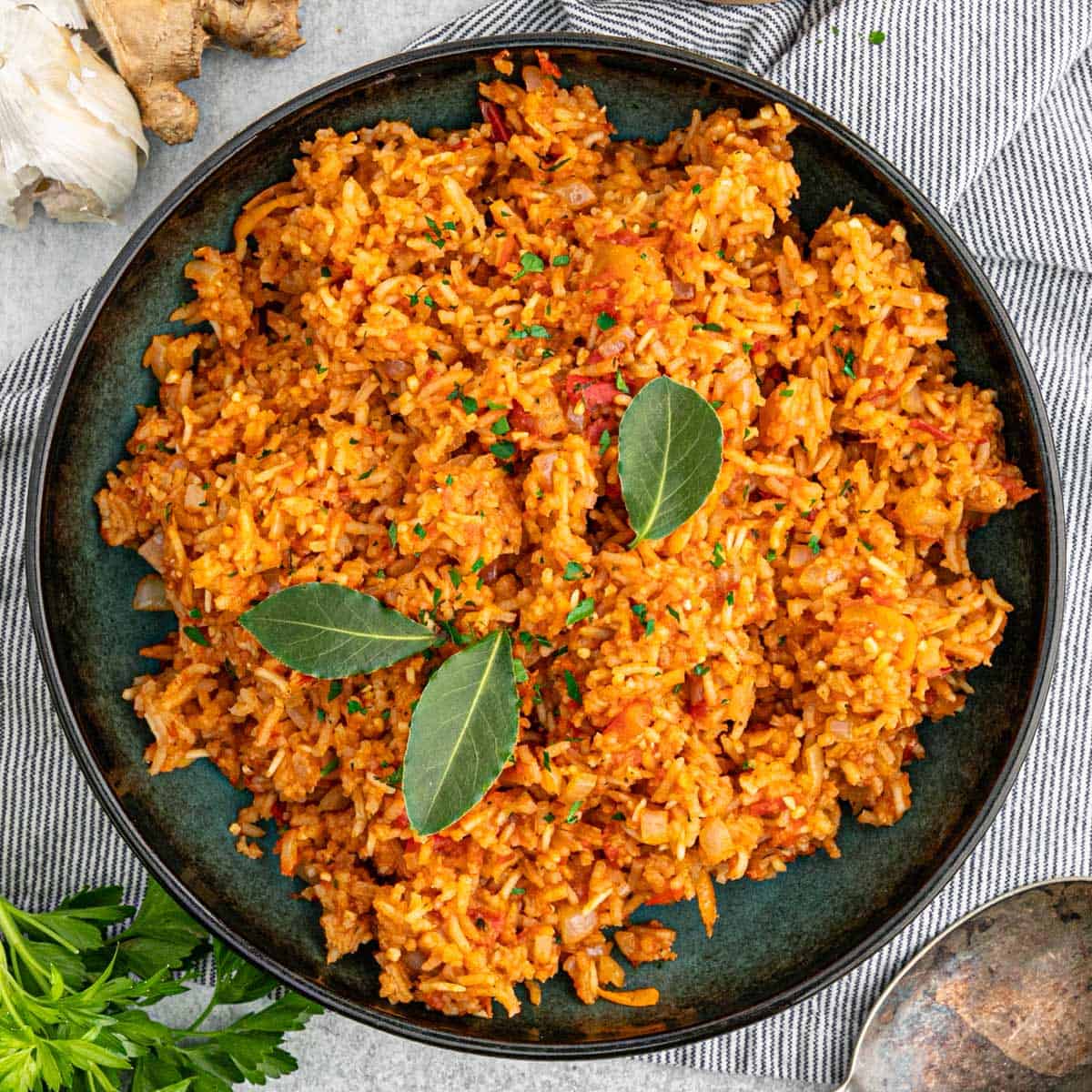
When it comes to classic Nigerian comfort food, jollof rice is where it’s at. This hearty rice dish, flavored with tomatoes, chili peppers, and spices, is a staple in many Nigerian homes.
To make jollof rice, you’ll need:
- Long-grain rice (parboiled rice works well)
- Diced tomatoes
- Onion, diced
- Chili peppers, seeded and chopped
- Vegetable oil
- Stock (chicken or beef)
- Spices like curry powder, thyme, garlic, and ginger
Heat the oil in a saucepan and sauté the onions, tomatoes, and chili until soft. Add the spices and cook for a minute until fragrant.
Pour in the stock and bring to a boil. Add the rice, stir, cover and reduce heat to low. Simmer for about 20 minutes until the rice is tender and has absorbed all the liquid.
Serve it with classic accompaniments like fried plantains, coleslaw, peppered snails or beef stew. One bite of this flavorful dish and you’ll see why jollof rice is considered Nigeria’s national dish.
Egusi Soup With Pounded Yam or Fufu
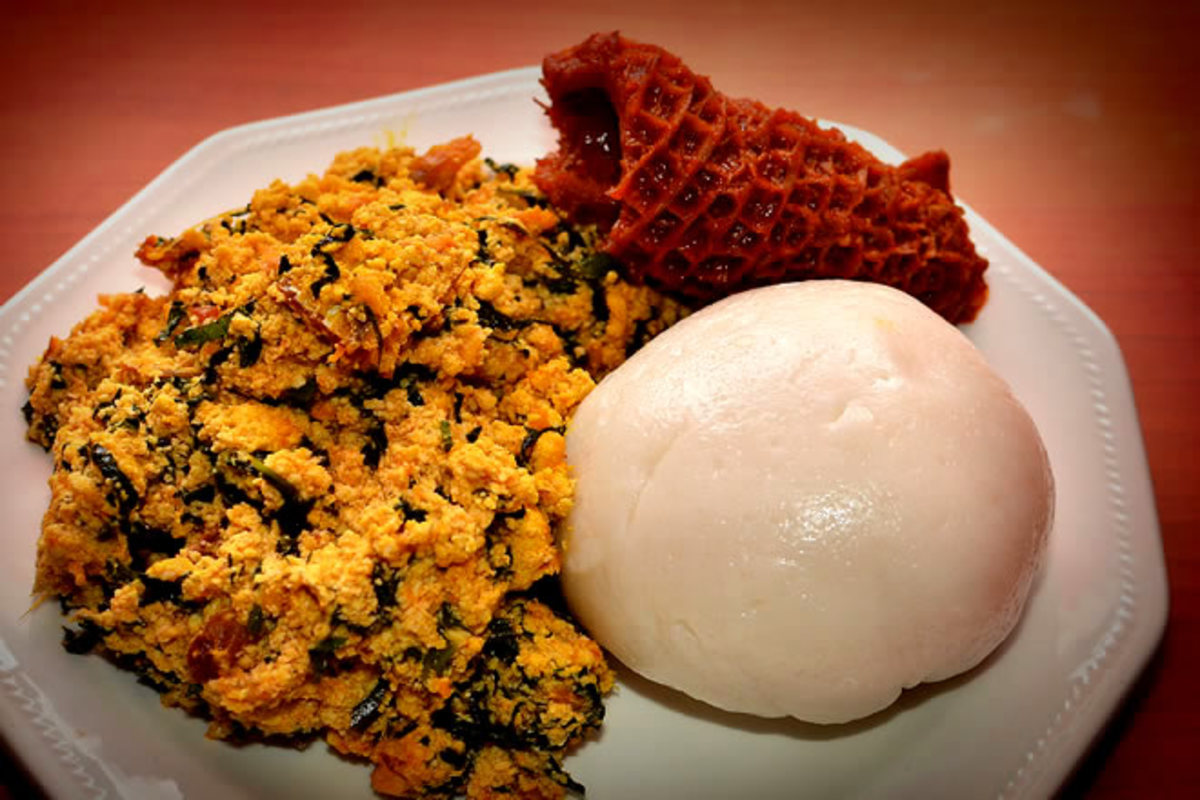
A hearty Nigerian dinner staple, egusi soup is made with melon seeds and leafy greens. The melon seeds provide a rich, nutty flavor and creamy texture. Traditionally, egusi soup is eaten with pounded yam, also known as iyan, which is boiled and pounded yam.
Egusi soup is a comforting dish, perfect for sharing with family and friends. The blend of greens, nutty egusi seeds and starchy side makes for a balanced, satisfying meal.
Pepper Soup With Goat Meat, Catfish or Chicken
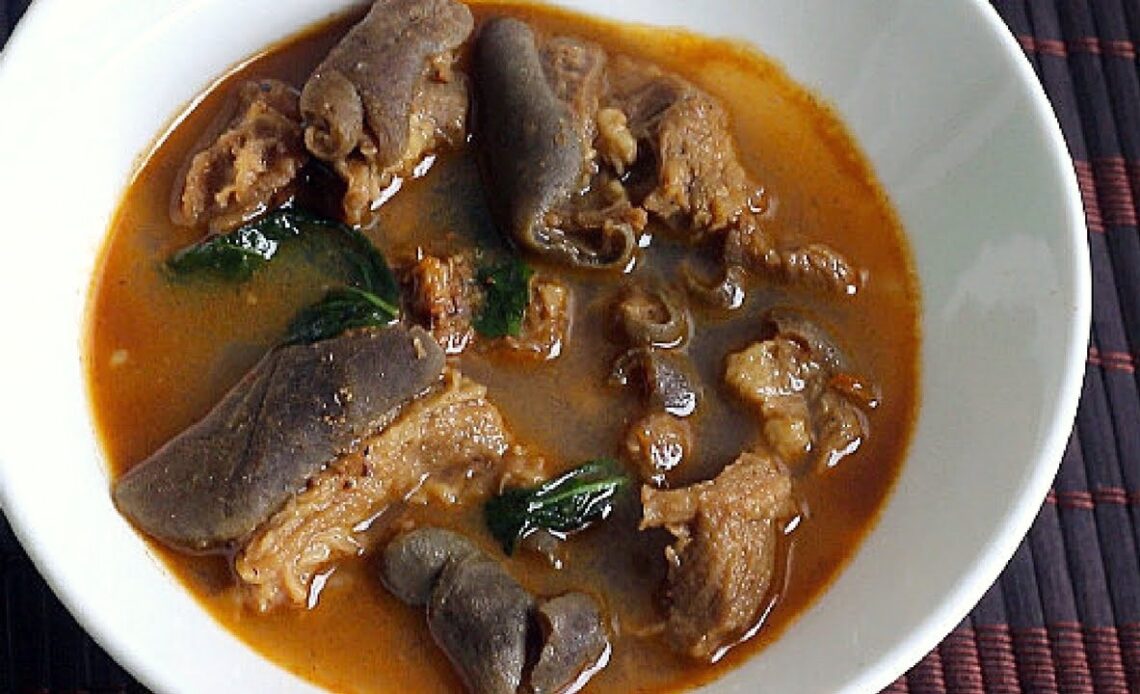
A popular Nigerian dinner idea is pepper soup, a spicy soup flavored with leafy greens and chili peppers. The most common types are made with goat meat, catfish or chicken.
Pepper Soup is hearty and protein-packed. Cubed goat, catfish or any protein of choice is simmered in a broth with chili peppers, leafy greens like utazi or uziza leaves, and spices until tender. The chili and spices give the broth a kick of heat while the greens provide an herbal, aromatic flavor.
A cold beer is perfect for taking the edge off the heat. Pepper soup is bold, fiery and sure to warm you up on a chilly night.
Suya – Spicy Grilled Skewered Meat
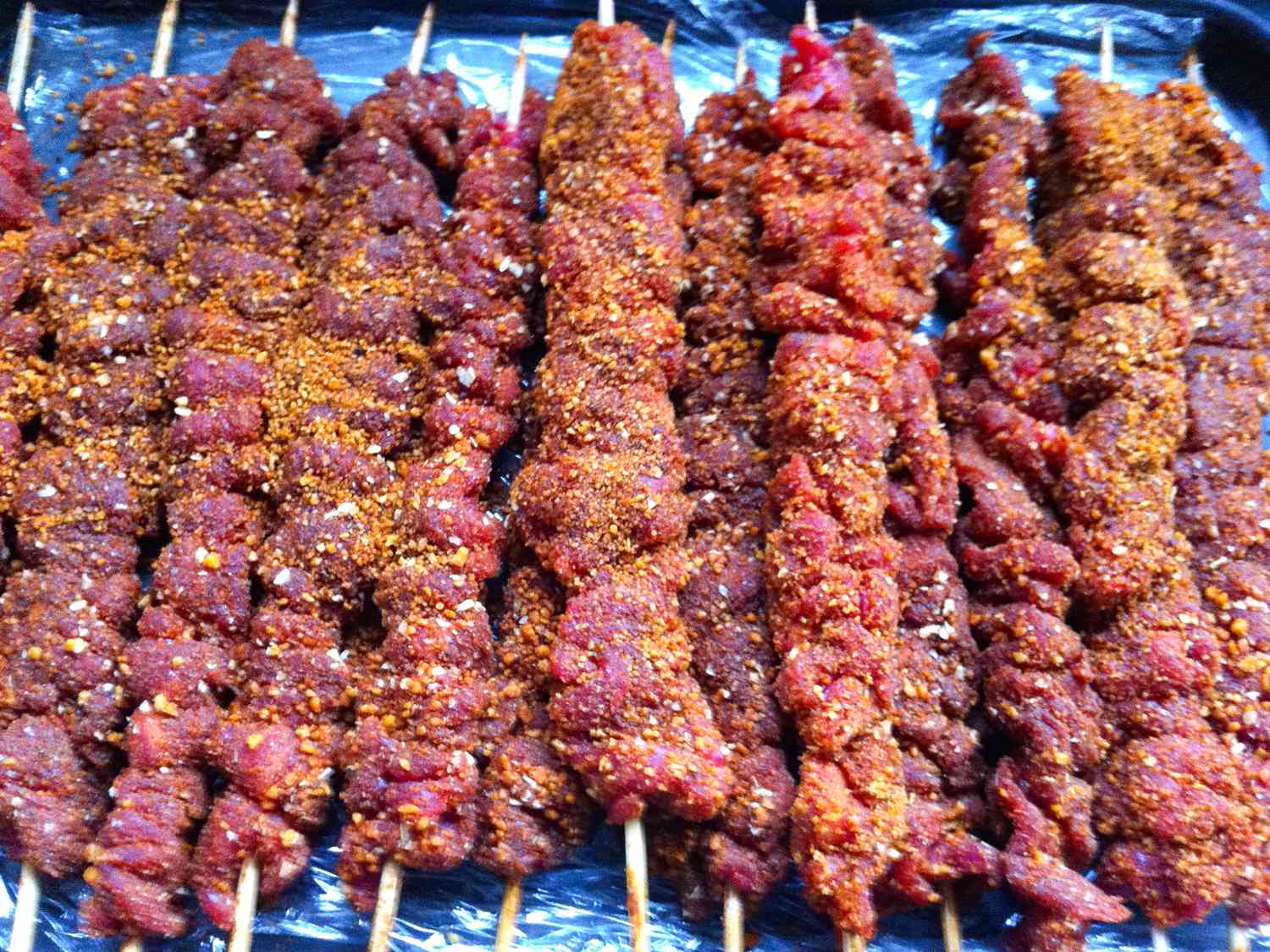
Suya is a popular Nigerian street food of thin strips of meat, usually beef, that are marinated in a spicy peanut sauce and grilled on skewers. The marinade typically contains ground peanuts, chili peppers, and spices like ginger and garlic which give the meat a bold kick and aroma.
Suya vendors can be found grilling meat and selling it on sticks in the evenings. People flock to buy suya to snack on for dinner or as a late-night treat. The aroma of the spices and sound of the meat sizzling on the grill are hard to resist! Suya is usually quite affordable, making it a go-to option for a casual dinner or to snack on with friends.
Some also like to wrap the grilled suya meat strips in lettuce leaves, with sliced onions and chili sauce for extra flavor and crunch.
Moi Moi – Steamed Bean Cakes
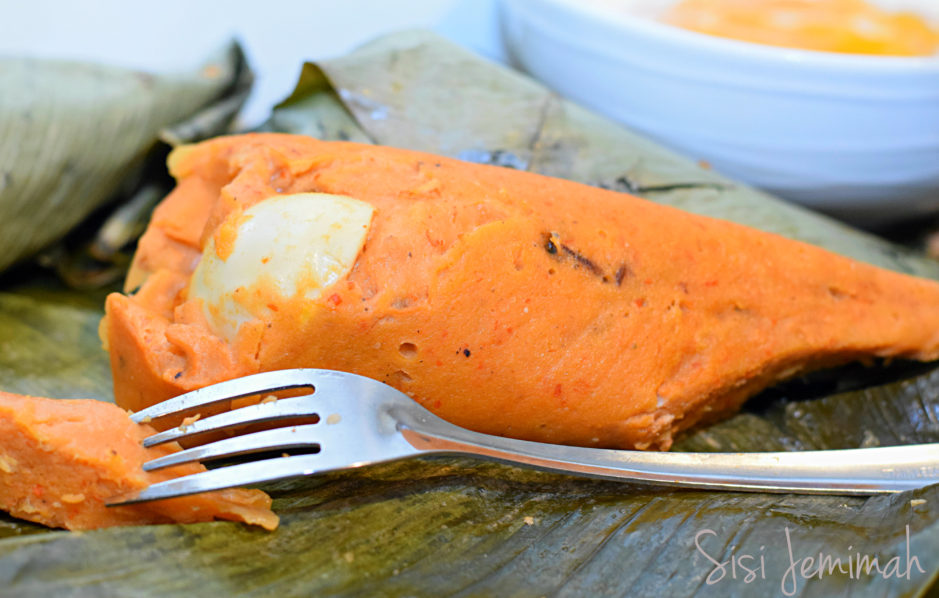
A popular Nigerian dinner dish is moi moi, steamed bean cakes made from black-eyed peas. To make moi moi, black-eyed peas are soaked, blended, and spiced with onions, chili peppers, and other aromatics. The mixture is then steamed in banana leaves, molds, or containers until firm.
Moi moi is usually eaten as a side dish but can also be enjoyed on its own. Its soft, spongy texture and savory flavor make it comforting and delicious. Moi moi is symbolic of family, culture and brings people together. Every Nigerian family has their own special recipe passed down through generations.
Yam and Egg Sauce
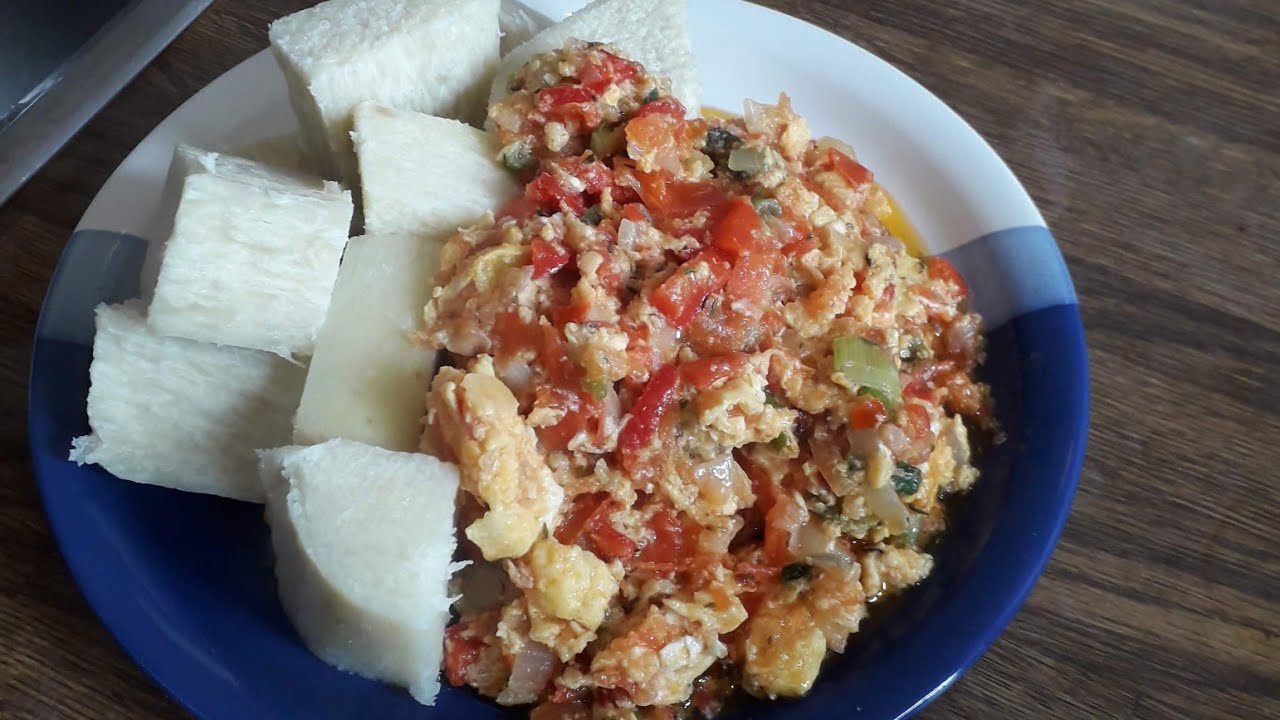
Yam and Egg Sauce is a delightful Nigerian dish that combines the richness of yam with the creamy goodness of egg sauce. It is a popular dinner option that is both satisfying and nutritious.
To prepare this dish, yam is peeled, cut into chunks, and boiled until tender. Meanwhile, the egg sauce is made by whisking eggs with a medley of spices, including onions, tomatoes, bell peppers, and a touch of chili for a hint of heat. The mixture is then gently cooked until the eggs are fluffy and perfectly seasoned.
Once the yam is cooked, it is served alongside the luscious egg sauce, creating a harmonious blend of flavors and textures. The softness of the yam perfectly complements the creamy and slightly tangy egg sauce, resulting in a mouthwatering combination that is sure to please your taste buds.
Not only is Yam and Egg Sauce a delicious dinner option, but it is also a great way to incorporate healthy ingredients into your meal. Yam is a good source of carbohydrates, providing sustained energy, while the eggs offer a good dose of protein, essential vitamins, and minerals. Together, they create a wholesome and balanced meal that will leave you feeling satisfied and nourished.
Akamu (Pap) or Custard
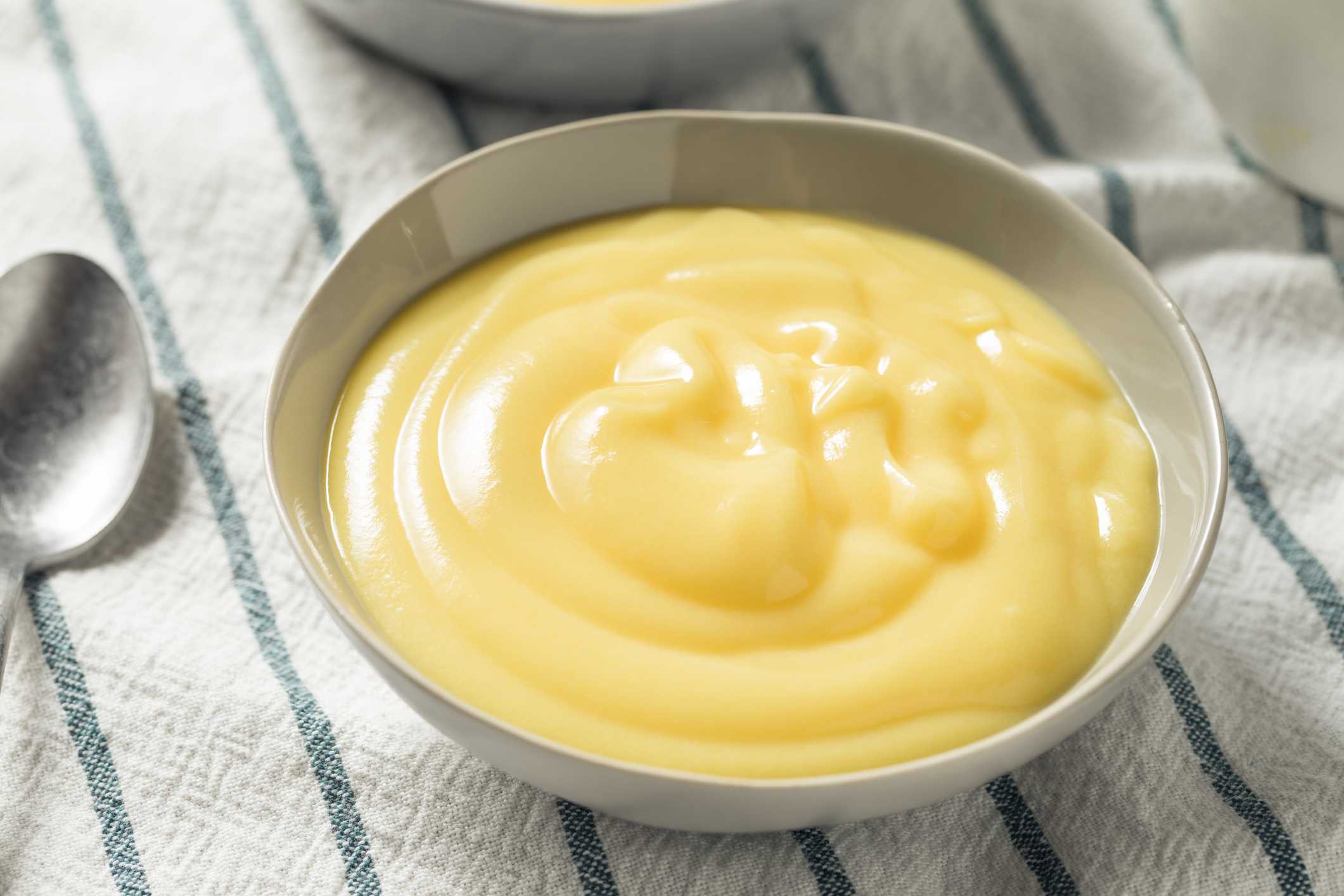
Akamu, also known as pap, ogi or custard, is a popular Nigerian breakfast meal, usually eaten at dinner time as well. This dish is made from fermented corn starch, corn flour or millet flour.
Akamu can be enjoyed either hot or cold. It is often served with sugar, coconut milk, fruit, or akara (bean cakes). Akamu provides carbohydrates, fiber, and various nutrients. It has been a staple food in Nigeria for centuries and remains widely consumed today for its simplicity, affordability and comforting quality.
Plantain Porridge
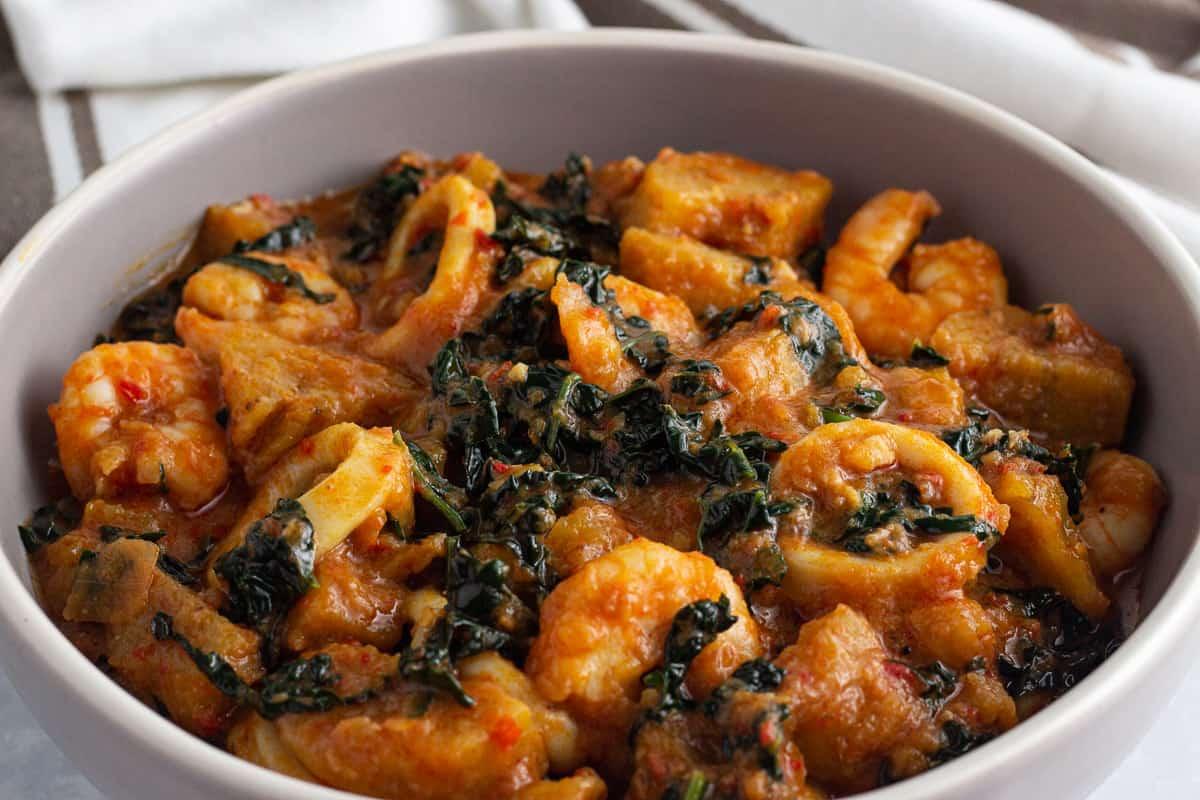
A staple in most Nigerian homes, plantain porridge is a delicious accompaniment for meats like beef, chicken or fish. To make it, peel 2-3 ripe plantains and cut into chunks. Boil in water until soft, about 10-15 minutes. Drain, reserving 1 cup of the cooking liquid. Mash the plantains then cook over low heat, stirring frequently, until heated through. If too thick, stir in a bit of the reserved cooking liquid.
Garnish individual servings with palm oil, fish, pepper, onion, seasoning cubes, and salt to your taste.
Tea and Bread
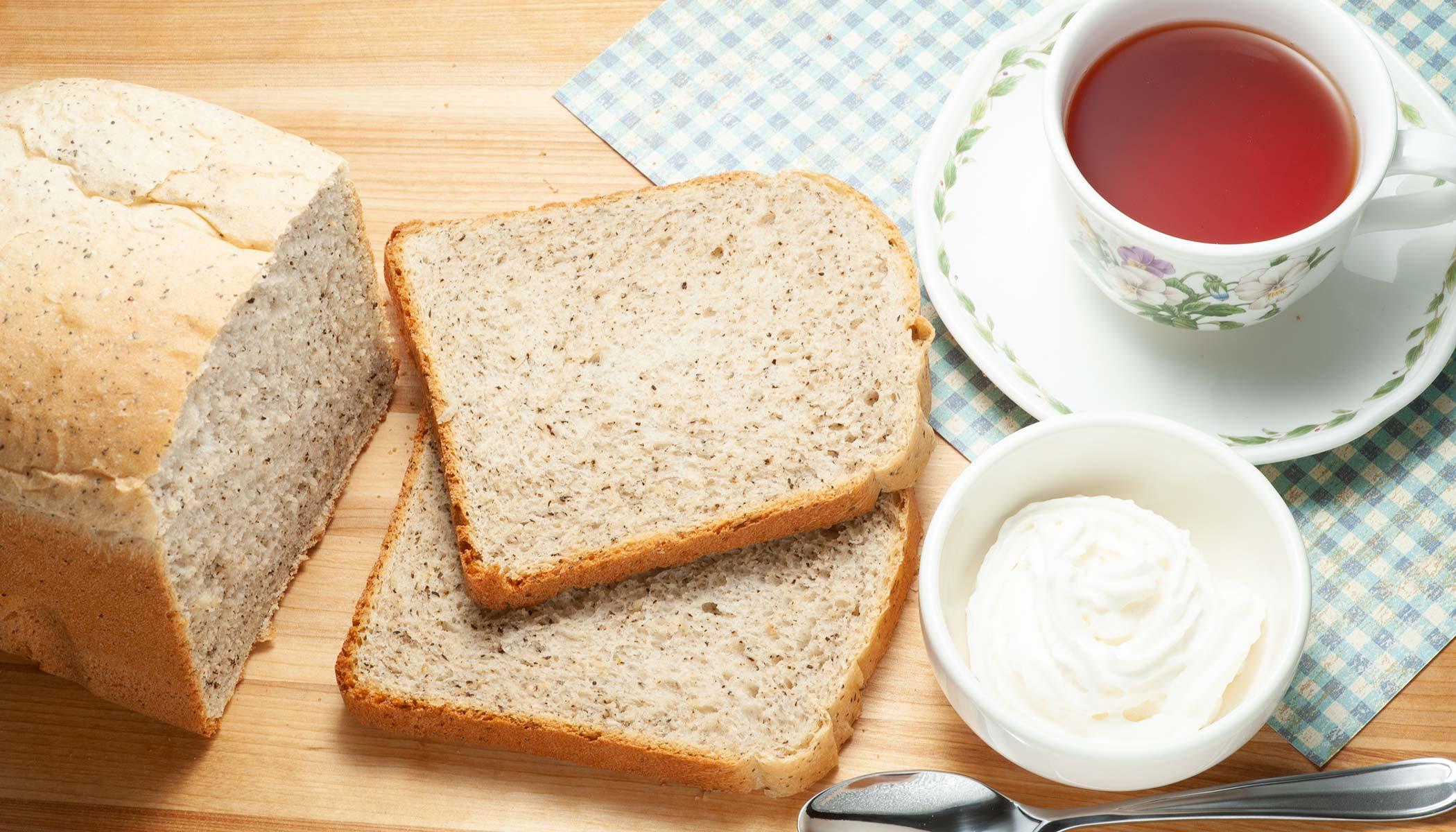
Nothing quite says comfort like a warm cup of tea and fresh-baked bread. This classic Nigerian night food will fill you up without weighing you down before bed.
Tea and bread is a breakfast and bedtime Food beloved for generations. Though basic, its comfort is priceless. On nights where dinner didn’t quite satisfy or you just want something cozy, tea and bread hits the spot.
White rice and Sauce or Stew
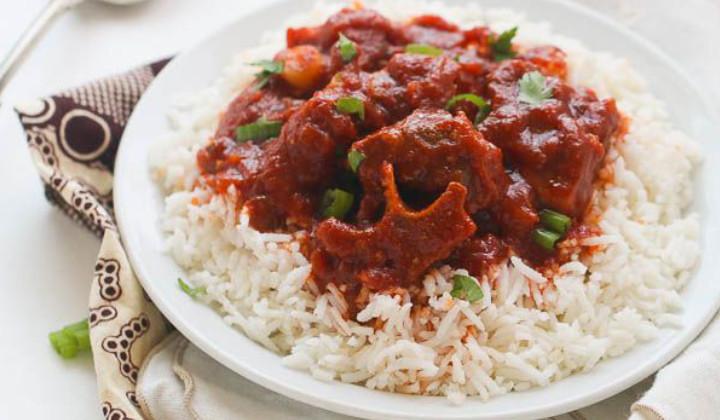
White rice and stew is a popular Nigerian dinner combination. Rice provides a neutral canvas for the vibrant flavors of the stew.
The stew, usually made with tomatoes, peppers, and onions, forms the flavor base. Common proteins include chicken, beef, goat or fish. A variety of spices like chili peppers, curry, thyme and nutmeg provide heat and aroma.
A bowl of rice paired with a hearty stew makes for a satisfying Nigerian dinner.
What Drinks do Nigerians Have with Dinner?
Common drinks to have with a Nigerian dinner include:
- Palm wine – Alcoholic drink tapped from palm trees
- Beer – Popular brands are Star, Gulder, and Guinness
- Fruit juices – Made from oranges, pineapple, mango, and more
- Soft drinks – Coke, Fanta, Sprite, and bottled water are popular
Conclusion
So there you have it, 10 of the most popular Nigerian dinner ideas to try. With dishes like jollof rice, moin moin, pepper soup, and suya, you’ll have plenty of delicious options to choose from. Whether you’re craving something spicy, starchy, saucy or grilled, Nigeria’s cuisine has you covered. The blend of flavors from native ingredients creates an experience your taste buds won’t soon forget.

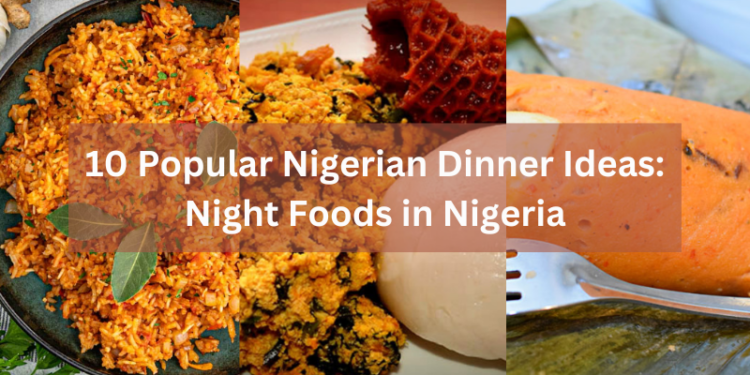
Discussion about this post